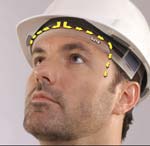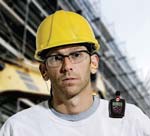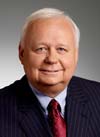By Dana Perkins
Technologies have radically changed our lives, but our environments haven't kept up the same pace to ensure a healthy and productive workplace.
By Russell J. Kendzior
The new B101.1 floor safety standard will change the way you address the growing problem of slip-and-fall accidents.

By Greg Thurmond
Sweating the small stuff can become a big problem. Clear vision is a must in order for your workers to be safe.

By Jim Banach
We must face the reality that hearing conservation efforts are interdisciplinary, integrated, and need leadership that executes a detailed and appropriate plan.

By Ronnie Rittenberry
There will come a point during the upcoming American Society of Safety Engineers Professional Development Conference & Expo, June 13-16 in Baltimore, when visitors will have the opportunity to witness something close to what inspired Maryland native Francis Scott Key by that dawn's early light in 1814, when he penned the words of what would become our national anthem.
By Jerry Laws
"When you're not thinking about your driving, your habits will kick in. If you've got good habits, your chances of having a collision are minimized. If you have poor habits, they're increased."
By Jim Stanley
The majority of construction accidents are not due to a lack of training, skill or knowledge — nearly all accidents are simply related to poor decision-making.

By Don Garvey
Results from a study of construction workers' chest x-rays at Department of Energy (DOE) facilities from 1996 to 2006 indicated that, depending on trade, abnormal results were found in 11 to 25 percent of the workers studied. The prevalence of abnormal chest x-ray increased with age and years worked.
By Robert Pater
Think that companies only suffer cumulative trauma disorders (CTDs) to their workers' backs, arms, and shoulders? Arguably, most professionals think of CTDs as physical problems — usually, strains and sprains. We explain in our injury-prevention work these ergonomic issues are like metal fatigue, akin to repetitively bending a piece of steel. One or a few creases may seem insignificant, but multiple bends can weaken, then eventually break, even the strongest superalloy. In the same vein, strawthat- broke-the-camel's-back leadership problems can contribute to organizational breakdown.

By Jerry Laws
Speaking with George Tway, senior vice president and Western Region manager for Employers Holdings Inc., a 97-year-old provider of worker's compensation coverage to about 45,000 policyholders in 30 states, gave me a strong sense of déjà vu.